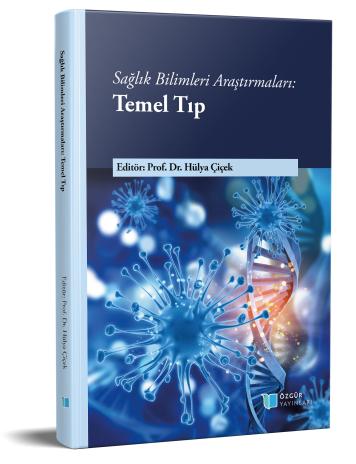
Çinko Eksikliği Tiroid Bozukluğuyla İlişkili Midir?
Şu kitabın bölümü:
Çiçek,
H.
(ed.)
2023.
Sağlık Bilimleri Araştırmaları: Temel Tıp.
Özet
Tiroid hormonları hemen hemen tüm dokuların gelişmesinde ve korunmasında önemli bir role sahiptir. Tiroid bozuklukları, hipofiz bezi gibi hemen hemen tüm endokrin bezleri etkiler. Tiroid bozuklukları, toplumdaki tüm gruplarda giderek yaygınlaşan endokrin anormalliklerdir. Normal tiroid durumu, tiroid hormonlarının sentezini ve metabolizmasını sürdürmek için birçok eser elementin varlığına bağlıdır. Çinko (Zn) ve bakır (Cu) gibi bazı eser elementler biyolojik süreçlerin düzenlenmesinde, normal tiroid fonksiyonunun sürdürülmesinde ve tiroid hastalıklarının önlenmesinde önemli rollere sahiptir. Zn, tetraiyodotironin (T4), triiyodotironinin (T3) dönüşümünde yer alan enzimin kofaktör görevi görür. Ayrıca Zn, pretirotropin salgılayan hormonun (TRH) dönüşümünde rol oynar. Tiroglobulin (Tg) ve tiroid peroksidaz (TPO), tiroide özgü iki önemli proteindir ve tiroid hormonunda dokuya özgü DNA'dan RNA'ya bilgi aktarım sürecini düzenler. Bu bilgi aktarım sürecinde, sisteine bağlı çinko içeren transkripsiyon bağlayıcı faktörler yer alır. Ayrıca tiroid bağlayıcı proteinlerin artması serum tiroksin düzeylerini artırır ve Zn de bu artıştan etkilenir. Yapılan çalışmalarda çinkonun TSH, T3 ve T4 üzerindeki etkisine ilişkin farklı sonuçlar saptanmıştır. Bu derlemenin amacı çinko eksikliğinin tiroid disfonksiyonu üzerine etkisinin olup olmadığını güncel literatür doğrultusunda değerlendirmektir.

